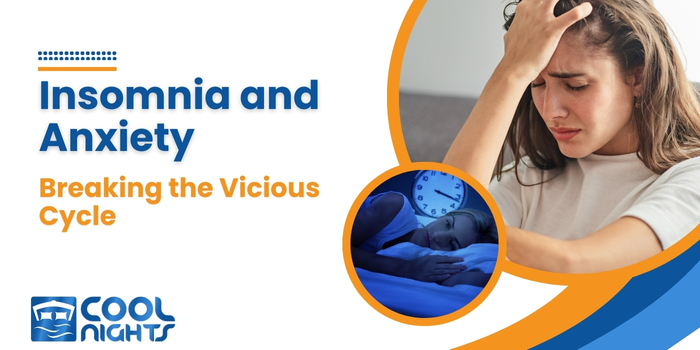Anxiety and insomnia often go hand in hand, creating a frustrating cycle that can be difficult to break. When you’re anxious, your mind races with worries, making it hard to relax and fall asleep. On the other hand, lack of sleep increases stress levels, making anxiety even worse. This vicious cycle can affect both mental and physical health, leading to exhaustion, irritability, and difficulty concentrating. Understanding the connection between insomnia and anxiety is the first step toward breaking free and reclaiming restful nights.
How Anxiety Fuels Insomnia
Anxiety triggers the body’s fight-or-flight response, releasing stress hormones like cortisol and adrenaline. These hormones are designed to keep you alert, which is the opposite of what you need for sleep. When your mind is filled with racing thoughts about work, relationships, or daily responsibilities, it becomes nearly impossible to relax enough to drift off. Even if you do fall asleep, anxiety can lead to frequent awakenings throughout the night, leaving you feeling unrested in the morning.
Chronic stress also changes the way your brain processes sleep. Over time, your body starts associating bedtime with worry, making it harder to relax at night. This learned behavior can turn occasional sleepless nights into long-term insomnia.
How Insomnia Worsens Anxiety
Sleep is essential for emotional regulation and mental clarity. When you don’t get enough rest, your brain has trouble managing stress, leading to heightened anxiety the next day. A lack of sleep makes negative thoughts feel even more overwhelming, increasing feelings of worry and tension. This, in turn, makes it harder to sleep the next night, continuing the cycle.
Additionally, sleep deprivation affects the nervous system, keeping it in a heightened state of alertness. Even small stressors can feel overwhelming when your body is constantly on edge. This can lead to increased irritability, trouble focusing, and physical symptoms like headaches or muscle tension.
Breaking the Cycle
The good news is that the cycle of anxiety and insomnia can be broken with the right strategies. Here are some effective ways to regain control:
- Create a Calming Bedtime Routine: Before bed, Engage in relaxing activities such as reading, meditating, or taking a warm bath. Avoid screens, as blue light can interfere with melatonin production.
- Practice Deep Breathing and Mindfulness – Techniques like deep breathing, progressive muscle relaxation, and meditation can help calm an overactive mind and reduce nighttime anxiety.
- Limit Stimulants – Reduce caffeine and alcohol intake, especially in the afternoon and evening. These substances can interfere with sleep and increase anxiety.
- Exercise Regularly – Physical activity helps regulate stress hormones and improve sleep quality. However, avoid intense workouts close to bedtime.
- Stick to a Consistent Sleep Schedule – Going to bed and waking up at the same time every day helps regulate your body’s internal clock and promotes better sleep.
- Challenge Negative Thoughts – If anxious thoughts keep you awake, try writing them down and reframing them in a more positive or realistic light.
If anxiety and insomnia persist despite lifestyle changes, consider seeking professional help. Therapy, cognitive behavioral techniques, or medical support can provide valuable guidance. By addressing both anxiety and sleep disturbances, you can restore balance to your mind and body, allowing for peaceful nights and calmer days.


